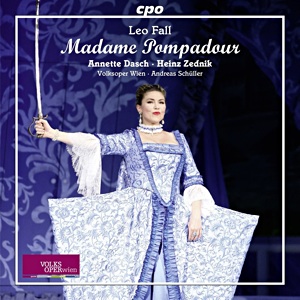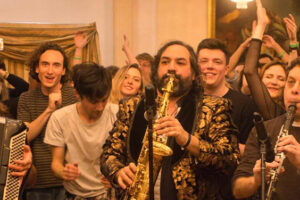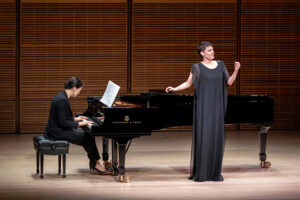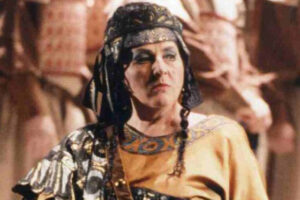
“To play La Pompadour—what a delightful task! To be La Pompadour—what a gruesome fate!” Thus spoke operetta superstar Fritzi Massary after researching her role as Louis XV’s official mistress in the Leo Fall operetta Madame Pompadour, which was written as a star vehicle for “die Massary” and had its first, hugely successful, performance in Berlin in 1922, followed by runs in Vienna and London.
Fall wrote a series of operettas in the later Viennese style, following the pattern of Die lustige Witwe. Madame Pompadour was his last, he died shortly afterwards; in fact the careers of the major participants in this piece’s creation were sadly curtailed. “Die Massary” had to flee to the US in the 1930’s because of her Jewish heritage and did not continue as a performer. One of the librettists, Rudolph Schanzer, who wrote the German text in collaboration with Ernst Welisch, committed suicide while under arrest by the Gestapo.
The real Madame de Pompadour, 1722-1764, in addition to being the king’s maîtresse-en-titre, was a patron of the arts, reflected in the opening scene of the operetta’s second act which depicts her receiving the painter François Boucher and artists from the Sèvres porcelain factory.
In this operetta, recorded on a single CD from live performances at the Vienna Volksoper in 2012, the Count René, straying from his wife whom he has left at his estate, is partying at an inn in Paris with his friend, a poet called Josef. When René picks up a pretty girl, she is found to be Madame de Pompadour in disguise, and he is arrested. She gets him freed on condition that both he and Josef will come home with her, Josef to write her a play, and René to be her personal bodyguard for the night shift. René is by now highly smitten with Pompadour and is happy to oblige.
In her bedroom, Pompadour is sought out for advice on how to win her husband’s love back by a distressed married lady who turns out to be both Pompadour’s long lost sister and René’s wife. When the King returns unexpectedly to find a strange man in his mistress’s bedroom, Pompadour is able to convince him that she was only acting as a marriage counsellor for her sister and brother-in-law.
This is a very tuneful piece with a lot of rubato-laden waltzes and peppy marches, you can really see how almost every number of this operetta could be a popular hit. Only a few snatches of the long spoken dialogue are included, enabling the music to be fitted onto a single CD. The huge title role is onstage and singing virtually the entire length of the piece after the first few minutes. It is apparent that the role was written for a star of great allure of voice and person, requiring a combination of cabaret-type singing and acting with the voice, together with operatic vocal ability.
Annette Dasch makes a good stab at it, with generally enjoyable results, successfully bringing comedy into her vocal performance with some passages of half-spoken delivery. The style does not seem to be something she was born to do however, more like something she has worked hard at accomplishing and her voice, though mostly very pleasant, tends to thinness at the top.
Honey-toned tenor Mirko Roschkowski as René is perfectly at home, his lyrical singing in his several waltz-duets with Dasch falling very pleasantly on the ear. My favourite part of the piece was a duet with Pompadour pretending to make predatory sexual advances at the terrified poet Josef, chasing him around the room in the number “Josef, ach Josef”. Character tenor Boris Pfeifer uses his not terribly attractive voice effectively in the role.
Yet another tenor turns up briefly as the King. I couldn’t believe my eyes at first when I looked at the cast and it said Heinz Zednik! I thought, what, that tenor from decades ago who was a distinguished Herodes in Salome and Mime in Siegfried? But yes, it really is him, in a very small part. The nicest thing I can say about his contribution to the recording, though, is that if you had been there to see him in the theatre I suppose it would have been nice to see a star from the past.
Very high level contributions from chorus and orchestra of the Volksoper and stylish conducting from young Berlin conductor Andreas Schüller. The recording includes quite a bit of stage noise and includes no libretto but there is a synopsis and a booklet with a lot of nice pics.
























Comments